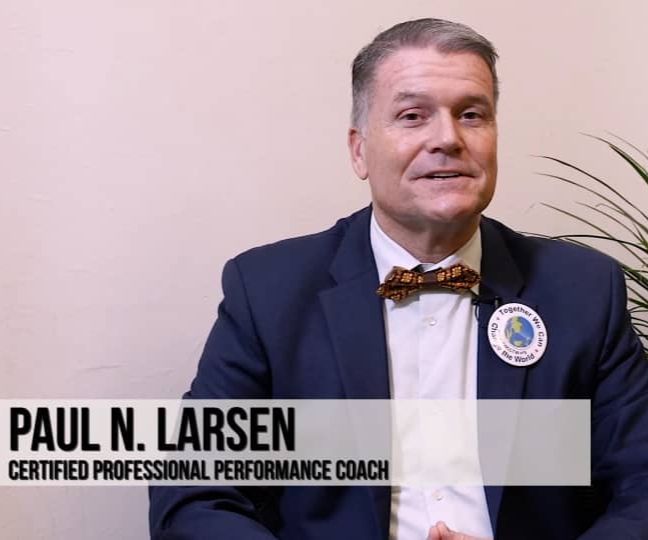How to Build a Health-Conscious Work Routine

Photo by macrovector @ freepik
Companies and employees both have begun to realise how crucial a positive environment is to productivity and performance. However, a positive environment is not limited to a cheerful, cohesive team; it extends to various aspects of the employee's life, including their overall well-being and health.
When employees can maintain their health while working comfortably in the office, it creates a positive, safe, and productive environment. The World Health Organisation (WHO) maintains that a positive environment can be created when management and employees collaborate to ensure employees' health and well-being, thereby maintaining and elevating the organisation's productivity.
Read more: The Guilt-Free Morning Routine: A More Workable Way to Start the Day Right
Creating a health-conscious work routine is all about taking small steps in the right direction. These small steps ultimately make a significant difference.
Morning Habits to Start the Day Right
When you start the day on the right foot, everything else just falls into place. Here are some morning habits you can look into to start the day just right:
- Stretching Exercises - Before getting out of bed, stretch your arms above your head and extend your legs as far as you can. Then, you inhale and exhale.
- Water - The first thing you do after you get up from the bed is drink water. Drink a glass of water to keep your body hydrated and your mind refreshed.
- Meditation - Take a few minutes out to meditate. You can also try engaging in mindfulness meditation if you wish.
- Breakfast - In today’s fast-paced, busy life, many often skip breakfast, but never skip this one. It is the first and most important meal of the day, so always start your day with a healthy breakfast, even if it's a light one.
- Water Bottle - Keep a refillable water bottle with you, as you need to keep drinking water at regular intervals to keep your body hydrated. Not only does your water bottle provide easy access to water whenever you need it, but it also serves as a reminder to stay hydrated.
Ergonomic & Intentional Workspaces
Ergonomic and intentional workspaces boost employee health. While companies can get experts to make their offices ergonomic, here are a few steps to follow as well:
- Ergonomic Chair - Most employees spend their working hours seated in their chairs. Long hours can lead to complaints of back pain and other aches, so it is best to invest in ergonomic chairs for all employees. These chairs keep the body in an upright position and support the spine, neck, shoulders, and hips.

- Monitor Height - In today's digitised world, working means sitting in front of the PC or laptop for hours. Getting your monitor's height right is crucial, as sitting too high or too low at the computer desk can lead to a myriad of aches and strains. You should be seated 50-100 cm away from your monitor and adjust the height of your desk so that your elbows are at a comfortable level, allowing you to rest your hands on the desk when using your keyboard.
- Standing Desk - The employee's desk is one of the other essential pieces of furniture that contribute to creating an ergonomic workspace. Sitting for extended periods throughout the day is not suitable for the body or the mind; therefore, employees should move around and stand upright for a portion of the day. Investing in standing desks helps with this, as they enable employees to stand in an upright position, burn calories, and promote good heart health.
Movement Throughout the Workday
Exercise is not the only way to get the body active and moving. The idea is to keep moving throughout the day to keep the body energised and healthy, even if it means stretching at your desk or taking a few rounds on the office premises. It is sitting at your desk all day that is the enemy.
Mental Health & Stress Management
Managing stress is crucial for maintaining both your physical and mental health. Chronic stress depletes your mind and weakens your immune system, giving way to illnesses and other diseases. Even as companies need to ensure that they do not stress their employees to the point of burnout, they can also adopt healthy coping mechanisms to mitigate stress and its associated strains.
When stress remains unmanaged for long periods, individuals may sometimes resort to unhealthy coping strategies, including unhealthy habits or even problematic substance use. Understanding healthier pathways and seeking support when needed can make a significant difference.
There are two kinds of coping mechanisms - problem-focused coping and emotion-focused coping:
- Problem-focused coping involves seeking to reduce or eliminate the stress-causing problem by engaging in activities such as problem-solving, decision-making, and time management, among others.
- Emotion-focused coping involves seeking to reduce or eliminate the negative emotions associated with stress by engaging in relaxing exercises, meditation, mindfulness, self-care, or taking a break.
This may interest you: Where Does Self-Care Fit on Your To-Do List?
Mindful Eating at Work
Recently, a substantial body of research has emerged indicating a connection between nutrition and mental well-being. Food is at the core of good nutrition. However, food is not meant to be taken as a medicine for survival. Instead, when you eat food as a rich sensory and somatic experience, you savour it and enjoy every bit of it. This is what is known as the art of mindful eating.
Mindful eating becomes even more crucial while you are at work, as it involves more than just grabbing something and returning to your desk or attending a meeting. It captivates your mind and shows gratitude for what you can put on the table.
Long-Term Wellness Habits
Long-term wellness habits are small practices you cultivate that lead to big payoffs - they keep your mind, body, and spirit active and healthy. Here are some of the key long-term wellness habits:
- A balanced diet consists of fruits, vegetables, whole grains, and lean proteins.
- Regular physical exercise - whether it is walking, jogging, swimming, or hitting the gym.
- Exercises for the mind are just as important as exercise for the body. You can engage in meditation, mindfulness, and yoga every day.
- Water is the life-giving elixir you have within your reach. Keep your body and mind refreshed by drinking water at regular intervals throughout the day.
- Prioritise a consistent sleep pattern. Experts recommend a good night's sleep of 7-9 hours to rejuvenate your mind and body for the day ahead.
- Cultivate enriching social connections that bring joy and meaning to your life.
- Finally, prioritise yourself. Engage in self-care, whether it is to pamper yourself or to schedule regular health check-ups that enable you to stay ahead of your well-being in the long run.
Final Reflections
Adulting means work becomes inevitable. It is a medium that brings your childhood dreams to life, even as it enables you to survive in the world. However, between work and life, your health can become neglected if you do not prioritise it. By taking conscious steps to build a routine that prioritises your health, you can make small changes that will have a significant impact over time.
Leaderonomics.com is an advertisement-free website. Your continuous support and trust in us enable us to curate, deliver, and maintain our website. When you support us, you enable millions to continue reading for free on our website. Will you give it today? Click here to support us.
Functional
Tags: A Day In The Life, Abundance Mindset, Alignment & Clarity, Building Functional Competencies, Consultant Corner, Growth Mindset, Hard Talk
Derek Eckley, a New Jersey native, overcame a decade-long battle with addiction and now mentors young men in recovery. Drawing from his own experience, he guides them through early sobriety challenges, emphasising discipline, accountability, and 12-step involvement. Passionate about rebuilding lives, he helps others navigate relationships, careers, and lasting recovery.






